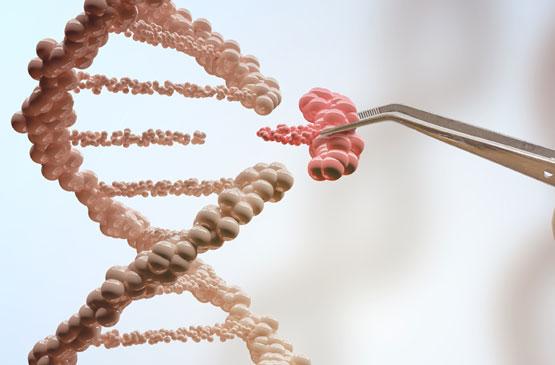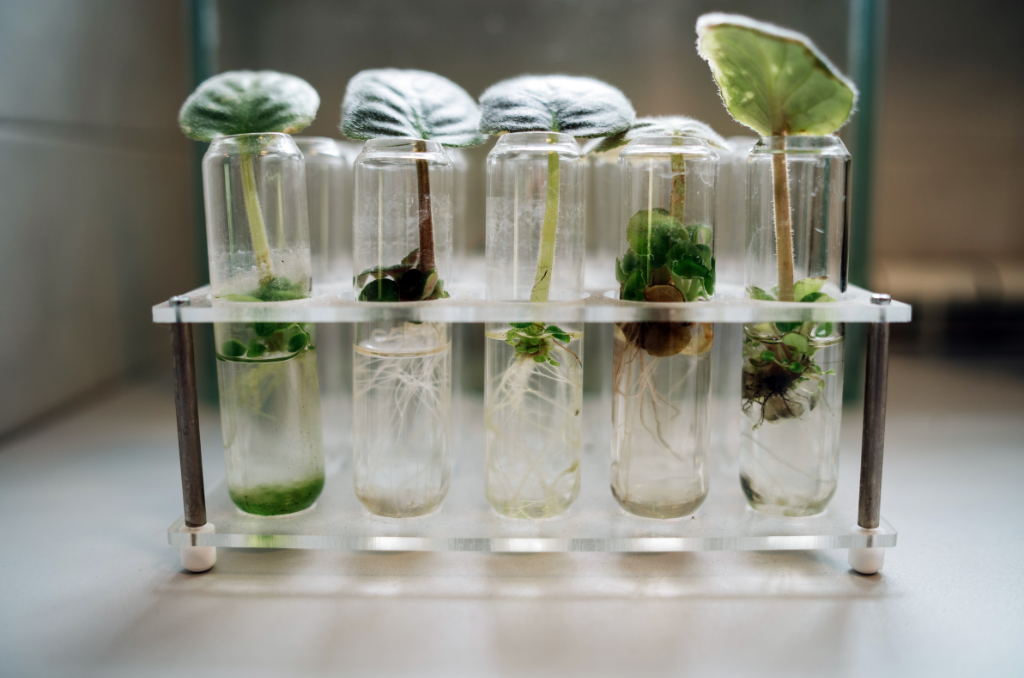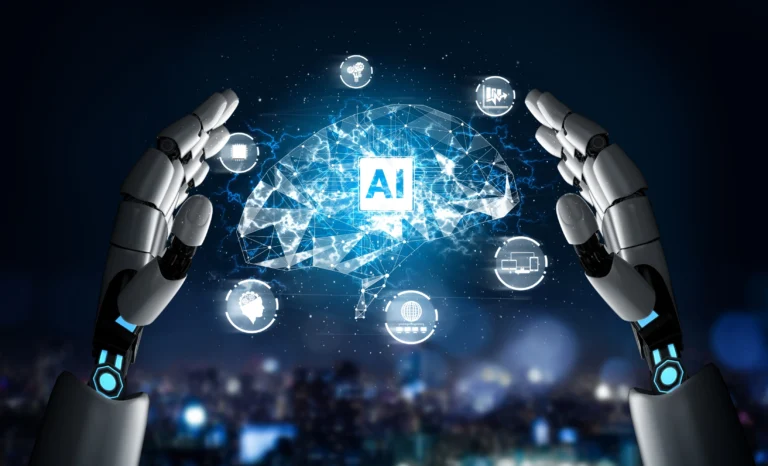Biotechnology is transforming our world. It combines biology and technology to solve problems.
Imagine using living organisms to develop new products. That’s biotechnology. It has many applications, from medicine to agriculture. Scientists use it to make vaccines, improve crops, and create cleaner energy. This field is vast and full of potential. Understanding biotechnology can help us appreciate its impact on our daily lives.
In this blog, we’ll explore the basics and benefits of biotechnology. Get ready to dive into a world where science meets innovation.
Introduction
Biotechnology is the use of living organisms or their systems to make products or solve problems. It combines biology and technology to create innovations in medicine, agriculture, and industry.
Biotechnology is a fascinating field. It blends biology with technology. This combination helps solve many problems. From medical advancements to environmental protection, biotechnology impacts our lives.
What Is Biotechnology?
Biotechnology uses living organisms to create products. These products can be medicines, food, or even fuel. Scientists use cells and proteins in their research. This helps them understand and manipulate biological processes.
Historical Background
Biotechnology is not new. Its roots trace back thousands of years. Early humans used fermentation to make bread and beer. In the 20th century, modern biotechnology began to develop. Scientists discovered DNA and its structure. This breakthrough led to many new technologies. Today, biotechnology continues to evolve rapidly. It promises exciting possibilities for the future.
“`

Credit: www.bio.org
Biotechnology In Medicine
Biotechnology in medicine has revolutionized healthcare. It offers new ways to diagnose and treat diseases. Modern biotech provides tools for better health outcomes. These advancements include gene therapy and personalized medicine. Let’s explore these exciting areas.
Gene Therapy
Gene therapy aims to treat genetic disorders. It involves altering genes within a patient’s cells. Scientists replace faulty genes with healthy ones. This technique can cure diseases at their root. For example, it can help treat cystic fibrosis and hemophilia. Gene therapy is a promising frontier in medicine.
Personalized Medicine
Personalized medicine tailors treatment to individuals. It considers a person’s genetic makeup. Doctors use genetic information to choose the best drugs and treatments. This approach improves the chances of success. It can reduce side effects and increase effectiveness. Personalized medicine represents a major shift from one-size-fits-all treatments.
Advancements In Medical Biotechnology
Biotechnology has made significant strides in recent years. Medical biotechnology, in particular, has seen many advancements. These advancements improve patient outcomes and offer new treatment options. Below, we explore some of these key developments.
Crispr Technology
CRISPR technology has changed the field of genetic research. This tool allows scientists to edit genes with precision. It is faster and more accurate than older methods. Researchers use CRISPR to study diseases at the genetic level. This could lead to better treatments. It may also help cure genetic disorders. The potential of CRISPR is vast and still being explored.
Stem Cell Research
Stem cell research holds promise for medical treatments. Stem cells can develop into different types of cells. This makes them valuable for healing damaged tissues. Scientists are using stem cells to study various diseases. They are also working on developing stem cell therapies. These therapies could treat conditions like Parkinson’s and heart disease. Stem cell research continues to offer hope for many patients.
Biotechnology In Agriculture
Biotechnology in Agriculture has transformed the way we grow food. By using science and technology, farmers can produce crops more efficiently. This means better yields and healthier plants. Below, we explore two key areas of biotechnology in agriculture.
Genetically Modified Crops
Genetically Modified (GM) crops are plants with altered DNA. Scientists add new traits to these plants. This makes them resistant to pests and diseases. Farmers benefit from GM crops in several ways:
- Higher Yields: GM crops produce more food per acre.
- Pest Resistance: They reduce the need for chemical pesticides.
- Disease Resistance: Plants stay healthy and strong.
- Drought Tolerance: They survive better in dry conditions.
GM crops help feed a growing population. They also reduce the environmental impact of farming.
Sustainable Farming Practices
Sustainable farming practices aim to protect the environment. They use biotechnology to improve soil health and reduce waste. Here are some examples:
- Crop Rotation: Farmers grow different crops each season. This keeps the soil rich in nutrients.
- Cover Crops: These plants grow during off-seasons. They prevent soil erosion and improve soil quality.
- Biopesticides: Natural pesticides control pests without harming the environment.
- Precision Farming: Technology helps farmers use resources efficiently. Drones and sensors monitor crops and soil conditions.
These practices ensure that farming remains productive. They also protect natural resources for future generations.
Innovations In Agricultural Biotechnology
Agricultural biotechnology is transforming farming. New techniques improve crop yield and protect plants from pests and diseases. These innovations support sustainable farming and increase food security worldwide.
Crop Yield Improvement
Biotechnology helps farmers grow more food on less land. Scientists create genetically modified crops that produce higher yields. These crops need fewer resources, like water and fertilizer.
- Drought-resistant crops: Some crops can now survive with less water.
- Nutrient-efficient plants: Plants can use nutrients more effectively.
- Faster growth: Some modified crops grow faster than traditional ones.
These advancements help farmers produce more food, even in challenging conditions. This supports a growing global population.
Pest And Disease Resistance
Pests and diseases can destroy crops. Biotechnology helps protect plants from these threats. Scientists develop crops that are resistant to pests and diseases.
- Pest-resistant crops: Some plants produce their own pest repellents.
- Disease-resistant plants: These plants are less likely to get sick.
- Reduced pesticide use: Farmers use fewer chemicals on resistant crops.
These innovations lead to healthier plants and safer food. They also reduce the need for harmful pesticides. This is better for the environment and human health.
Biotechnology is making farming more efficient and sustainable. These innovations offer promising solutions to global food challenges.
Credit: aiche.onlinelibrary.wiley.com
Ethical Considerations
Biotechnology brings many benefits to society. Yet, it also raises ethical questions. These questions often focus on genetic modification, public perception, and potential risks.
Ethics In Genetic Modification
Genetic modification changes an organism’s DNA. This can improve crops or cure diseases. But, it also raises concerns. Some worry about playing with nature. Others fear unknown side effects.
There are also questions about consent. Do people have a say in genetic changes? Especially changes that affect future generations. These ethical dilemmas need careful thought.
Public Perception
Public perception of biotechnology varies. Some people see it as progress. They welcome new solutions for health and food security. Others are more skeptical. They fear unintended consequences.
Trust plays a big role here. People need clear information. They need to understand the benefits and risks. Transparency is key. It helps build trust and informed decisions.
Future Prospects
The field of biotechnology holds immense potential for the future. Innovations are reshaping industries and improving lives. The prospects seem limitless.
Emerging Technologies
New technologies are emerging at a rapid pace. These advances are unlocking new possibilities in various sectors.
- CRISPR-Cas9: This gene-editing tool allows precise modifications to DNA. It holds promise for treating genetic disorders.
- Artificial Intelligence: AI aids in drug discovery and personalized medicine. It helps analyze vast amounts of biological data.
- 3D Bioprinting: This technology creates tissues and organs. It may revolutionize organ transplants and regenerative medicine.
These technologies are just the beginning. More innovations are on the horizon.
Global Impact
Biotechnology is making a global impact. It addresses significant challenges and improves quality of life.
| Area | Impact |
|---|---|
| Healthcare | New treatments and therapies for diseases. |
| Agriculture | Genetically modified crops for better yield and resistance. |
| Environment | Bioremediation to clean up pollutants. |
These contributions are vital. They help to create a better world.
Biotechnology continues to grow. The future prospects are both exciting and promising.

Credit: www.biotech-careers.org
FAQs
What Is Biotechnology?
Biotechnology is the use of living systems and organisms to develop or make products. It involves techniques such as genetic engineering and fermentation.
How Is Biotechnology Used In Medicine?
Biotechnology is used in medicine to produce drugs, vaccines, and diagnostic tools. It helps in developing personalized medicine and gene therapy.
What Are The Benefits Of Biotechnology?
Biotechnology offers numerous benefits including improved crop yields, medical advancements, and environmental protection. It enhances food security and health care.
How Does Biotechnology Impact Agriculture?
Biotechnology improves crop resistance to pests, diseases, and environmental conditions. It helps in developing genetically modified crops with enhanced nutritional value.
Conclusion
Biotechnology holds immense potential for improving lives. It advances medicine, agriculture, and industry. This field continuously evolves, bringing new solutions and innovations. Embrace its benefits and stay informed. Understanding biotechnology helps us appreciate its impact. It shapes a better future.
Stay curious and explore its wonders.








